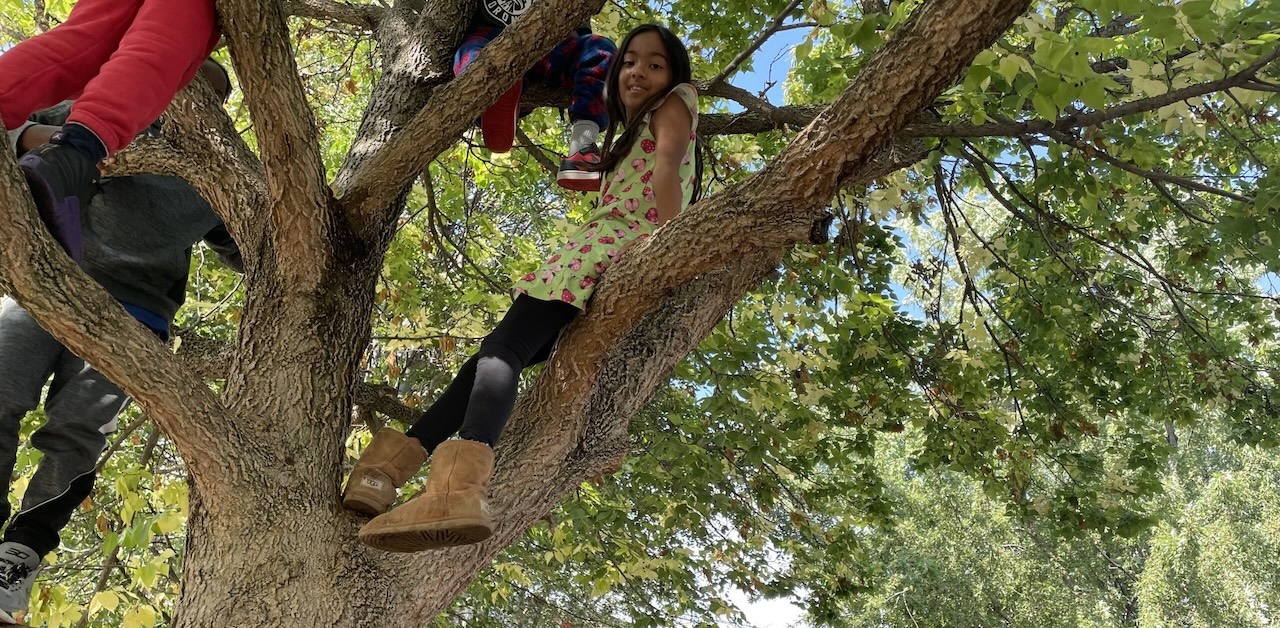The Canadian Paediatric Society released a Position Statement on Outdoor Risky Play

We are excited to highlight a Position Statement the Canadian Paediatric Society released last week. It has been gaining some attention in the media, so you may have heard about it already. The focus is on the benefits of outdoor risky play for children and how this can be supported in ways that align with injury prevention.
The great news is, at LEF we are already promoting many of these pieces in our programs!
Educators are skilled in offering children opportunities to evaluate challenges and letting them decide how they will proceed, based on their own ability and preference. This is the essence of risky play and research has shown there are benefits for children's physical, mental, and social-emotional development when these experiences are available.
LEF educators are also equipped to identify hazards - when a child may not recognize or be able to manage the potential of injury, for example, a weak branch on a tree they are about to climb. This is when Educators will step in to identify the hazard and ensure injury prevention takes place.
I encourage you to take some time to review the below document. The section around Mental and Social-Emotional Health is particularly interesting as we consider the impacts of extended time indoors and screen use. Risky play is also notable in terms of reducing children's anxiety, fears, and uncertainty.
I hope you enjoy the document and please be sure to reach out if you have any questions about how we are implementing risky play in our programs at LEF.
Healthy childhood development through outdoor risky play: Navigating the balance with injury prevention
Abstract
Free play is essential for children’s development and for their physical, mental, and social health. Opportunities to engage in outdoor free play—and risky play in particular—have declined significantly in recent years, in part because safety measures have sought to prevent all play-related injuries rather than focusing on serious and fatal injuries. Risky play is defined by thrilling and exciting forms of free play that involve uncertainty of outcome and a possibility of physical injury. Proponents of risky play differentiate ‘risk’ from ‘hazard’ and seek to reframe perceived risk as an opportunity for situational evaluation and personal development. This statement weighs the burden of play-related injuries alongside the evidence in favour of risky play, including its benefits, risks, and nuances, which can vary depending on a child’s developmental stage, ability, and social and medical context. Approaches are offered to promote open, constructive discussions with families and organizations. Paediatricians are encouraged to think of outdoor risky play as one way to help prevent and manage common health problems such as obesity, anxiety, and behavioural issues.
